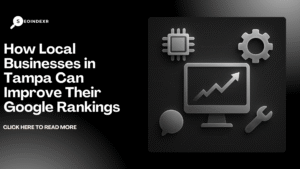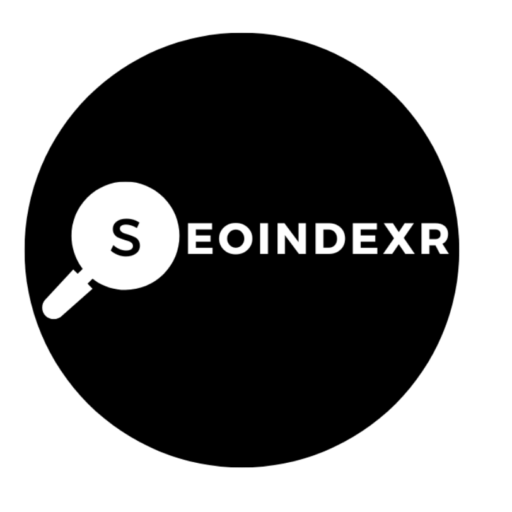Artificial Intelligence (AI) is evolving faster than ever, and Google continues to push the frontiers with innovative tools, frameworks, and language models. As AI becomes increasingly integrated with every facet of search, productivity tools, and back-end systems, it is essential to stay up to date with the latest practices and trends. Google AI is at the forefront of this revolution, currently spearheaded by their Gemini models, enhanced Search Generative Experiences (SGE), and ethical AI practices. In this blog, we dive into the key updates and factors that developers, data scientists, businesses, and general users should keep in mind regarding Google’s AI in 2025
Table of Contents
Toggle1. Introduction to Google AI in 2024
Google AI refers to the suite of artificial intelligence products, services, models, and research initiatives developed by Google. Over the years, this has included advancements in neural architecture (like Transformer models), large language models (such as BERT and PaLM), and now the Gemini family of models, which powers many of Google’s AI services.
In 2024, Google’s focus is on making AI safer, more helpful, transparent, and integrated into real-world tasks through products like Google Workspace, Google Cloud, and Android.
2. Gemini: The Next Evolution in Language Models
Gemini is Google DeepMind’s latest family of multimodal AI models, launched to succeed the PaLM 2 era. It represents a profound leap in understanding and generation because it has been trained natively on multiple modalities such as text, images, videos, and code.
Key Features of Gemini 1.5 and Beyond:
- Multimodal Capabilities: Understands and reasons over text, images, audio, and video inputs simultaneously.
- Extended Context Windows: Can process up to 1 million tokens, enabling analysis of large documents, research papers, books, and even entire codebases in one go.
- Improved Memory: Upcoming versions aim to have persistent memory, making long-term interactions with AI more contextual.
- Integration Across Google Products: Gemini powers Bard (now renamed “Gemini”), Google Workspace tools like Docs and Gmail, and developer APIs via Google Cloud’s Vertex AI.
3. Integration with Google Workspace and Cloud
Google has deeply embedded AI into its productivity suite. In 2024, Gemini assists in Gmail (writing suggestions), Google Sheets (data pattern recognition), Docs (auto-summarization and translation), and Slides (generating presentations).
For developers and enterprises, Google Cloud now offers the AI Studio and Vertex AI platforms. These let you build, train, and deploy custom models using Gemini while managing data privacy and scalability.
4. AI-Powered Search: The Search Generative Experience (SGE)
Search Generative Experience (SGE) combines Google Search with generative AI technologies. When users enter a question, they receive an AI-generated summary at the top of the search results, combining responses from reliable web sources with synthesized, conversational insight.
What to Keep in Mind for SEO and Content Creation
- Content must prioritize E-E-A-T (Experience, Expertise, Authoritativeness, Trustworthiness).
- Schema markup and structured data will be more important than ever.
- Answering user intent directly and comprehensively can raise chances of being featured in AI Snapshots.
5. AI Ethics and Responsible AI in Google’s Framework
Google maintains a strong focus on ethical AI deployment. With the proliferation of AI tools, 2024 experience includes stricter compliance checks, fairness evaluations, and guidelines informed by Google’s AI Principles established in 2018 and updated throughout the years.
Best Practices to Follow:
- Ensure that your AI uses are inclusive and avoid biased outcomes.
- Use clearly labeled AI-generated content, especially in user-facing messages.
- Uphold data privacy and user consent when training or deploying models.
6. AI Studio and Gemini API for Developers
Google’s AI Studio is a web-based developer console that allows building applications using Gemini APIs. Developers can explore capabilities in text generation, image understanding, writing assistants, and more.
Developers should note:
- You can implement Gemini through RESTful APIs or integrate with Google’s SDKs for Python and Android.
- Gemini Pro and Gemini Pro Vision offer scalable access to text and multimodal model capabilities, respectively.
- Rapid Prototyping tools help test scenarios and evaluate output quality quickly.
7. Keeping Data Secure and Private
As AI takes more prominent roles in sensitive operations, data security is paramount. In 2024, Google Cloud offers enterprise-grade privacy controls, including private model tuning, secure APIs, and role-based access gating.
Businesses are encouraged to use confidential computing environments and select Zero Trust architecture when building generative AI workflows.
8. AI-Generated Content Policies and Helpful Content Guidelines
Google clarifies that AI-generated content will not be penalized as long as it meets quality standards. The key is usefulness. Google Search quality systems focus on content that provides value to users, whether written by humans or generated with assistance from AI.
In 2024:
- AI-assisted content should still demonstrate subject-matter expertise.
- Avoid mass autoposting from AI without editing or reviewing.
- Always declare usage of AI tools in editorial processes when applicable for transparency.
9. Future Roadmap: What’s Next for Google AI?
Looking forward, Google’s AI initiatives are expected to impact areas including robotics, real-time voice interaction, AI agents, and longer-term memory/chat capabilities.
Future Gemini versions (such as Gemini 2.0 expected in late 2024) may include:
- Persistent Memory Across Sessions
- AI Agents Capable of Taking Action on Behalf of Users
- More Natural Conversational Speech with Real-Time Emotion Detection
- Custom Smaller Models for Edge Devices
10. Preparing Your Business for Google AI
Businesses should be preparing by educating employees, revising workflows, and enhancing data infrastructure. The convergence of Gemini AI, SGE, and AI-based tools like Duet AI will change operational efficiencies and customer interaction paradigms completely.
Frequently Asked Questions (FAQ)
Q1: Is Gemini AI available to the public?
A1: Yes, Gemini is accessible via Google’s Bard (now rebranded as Gemini), the Gemini API, and integrated into Google Workspace for users and developers.
Q2: Can I use Google AI in my own applications?
A2: Yes. Google’s AI Studio, Vertex AI, and the Gemini API provide access to Google’s models for custom use in websites, mobile apps, and backend systems.
Q3: How can I make my website compatible with the Search Generative Experience?
A3: Focus on delivering authoritative, experience-driven content optimized for intent, using proper schema markup and formatting to increase the chance of inclusion in AI-generated search summaries.
Q4: Are there any risks to using Google AI?
A4: Like all AI applications, privacy, bias, and misinformation are potential concerns. Google’s safety layers and ethical principles aim to mitigate these, but users and developers should stay vigilant and follow best practices.
Q5: What programming languages are supported in Gemini API?
A5: Google provides SDKs currently for Python, Node.js, and REST API references, with more integrations expected as Gemini rolls out across platforms.
Conclusion
Google AI is shaping the next wave of the digital revolution, from enhancing our productivity to redefining how we interact with technology. With innovations like the




